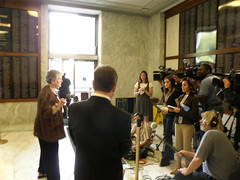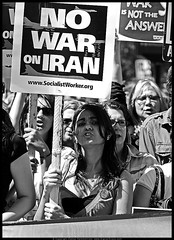 Unselfish Values and Morals. Is that what the USA lacks?
Unselfish Values and Morals. Is that what the USA lacks?A huge reason for the present state of the country's economy is the belief in so many of the populaces' mind that there is only one person to be concerned with; Me!
Swindlers who believe their business, and wallets, will swell by taking advantage of the very people who provide their livelihood. I am not talking about the smart businessman or businesswoman who makes loads of cash from a successful enterprise. I am talking about the ones who feel as if everyone owes them, and they will do anything to make a buck. The "What About Me?" crowd.
You see them in all walks of life, not just in business. They engage in everyday life, wondering how the day can benefit them, instead of how they can benefit the day. Because they have got to have something, or be someone, they spend money that they really can't afford to spend. They borrow money they can't afford to borrow because they want a jet ski, a fishing boat, a four-wheeler or a new house.
But the economy runs on people buying stuff, doesn't it? Yes, it does. But when we buy, buy, buy for the prestige, the feeling of importance, or other like motives, without concern for how our family or others might be affected by the expanding indebtedness, then it is a very selfish mentality.
Now, I am not saying that all the people in debt are selfish. If it sounded like that, it was not my intent. What I am relaying is that we need to be a bit more cognizant of the needs of people around us, instead of ourselves. We need to stop centering our lives around our own needs, and what WE want.
There are also those who feel they don't need to do anything to get anything. They just want to be able to sign a check or swipe a government funded cash card. They work alright. They work to find ways that they can swipe those cards and sign those checks without working!
Now, here I go again. Don't think I am talking about the people who NEED some sort of assistance to survive. There are many of them, and I would not lower myself to say they should not be helped. How ever a good and moral society could help these people, it should.
Back to business. In the realm of the enterprise, it seems to me a solid business should be built on actually paying attention to its customers and clients. If it were to make a customer happy, it would most likely have a customer for life. A business that solicits its customers feedback on what works and what doesn't, what products to offer, how to better its service, and acts upon those recommendations, would surely build a larger, stronger and more loyal customer base.
The swindlers in business go for the "one shot, one kill" deal, and suck as much from their "customer" as they can, because they really don't expect to see them again anyway. They conjure up grand marketing schemes to lure in the unsuspecting, with promises of warranties and guarantees, that when exercised, they fight tooth and nail, or finally, begrudgingly honor.
Its a moral issue. If someone has a bad moral attitude, they won't care who they hurt or step on in their journey to riches. Someone with a better moral attitude, would want to help a customer find what they need and ensure they are satisfied because it is the right thing to do. With that mentality you build a better business.
The bailouts are all about businessman who wouldn't budge; who had to do it their way. Selfishness at its pinnacle. Banks who had to loan cash and greedily invest the interest gained in risky investments which promised top yields. Automakers who had to do things the way they have always done them, not willing to explore anything new, but cut every corner they possibly could without sacrificing an actual vehicle to sell. The retailers stocking more and more of those "things" everyone WANTS, and advertising that this is something you NEED, because you DESERVE it.
And I guess it works its way full circle. It comes back to the person who takes all of it in, and then says "Yeah, I deserve it."
I have many more thoughts on the subject, but then, I would be rambling. I will not be "selfish" and do that.
:^)Forbes has an interesting piece of video on the subject.
 Image by Public Citizen via Flickr
Image by Public Citizen via Flickr![Reblog this post [with Zemanta]](http://img.zemanta.com/reblog_e.png?x-id=b3d50e17-c52a-492e-8d19-759ea189d56d)

![Reblog this post [with Zemanta]](http://img.zemanta.com/reblog_e.png?x-id=f33ec017-9684-49b4-b871-daaddf988a17)

![Reblog this post [with Zemanta]](http://img.zemanta.com/reblog_e.png?x-id=d29ebd7b-1d48-4485-a3ce-7220971fe7cf)

![Reblog this post [with Zemanta]](http://img.zemanta.com/reblog_e.png?x-id=6827032b-bf62-434e-bf79-6f04d0ea21b7)

![Reblog this post [with Zemanta]](http://img.zemanta.com/reblog_e.png?x-id=5f2bc1dd-7bab-4181-960e-1bd7be9bcdca)